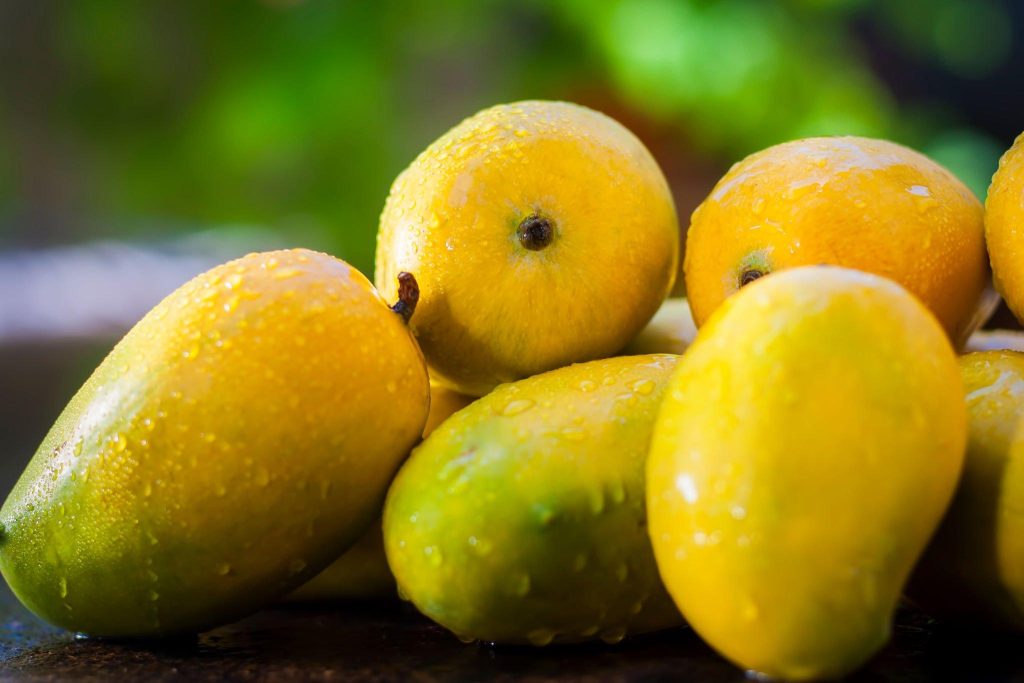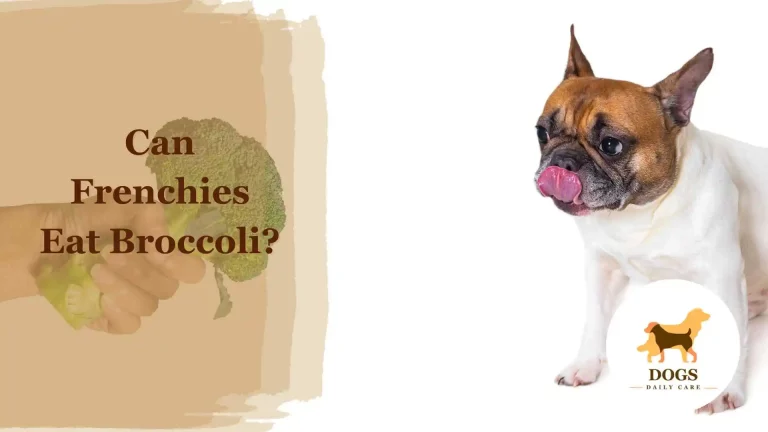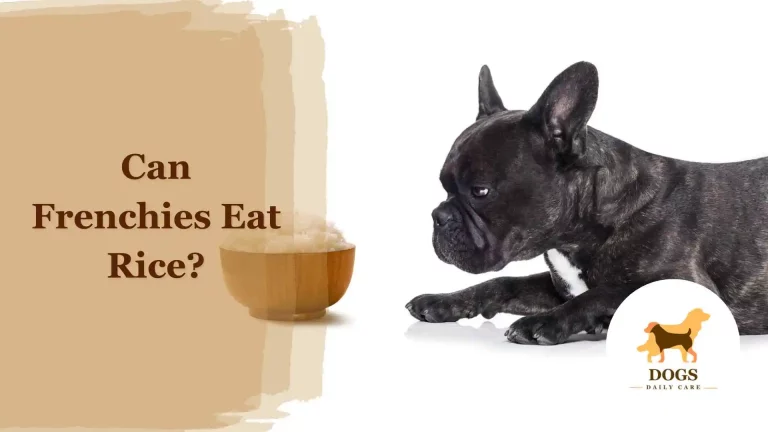Can Frenchies Eat Mango? – All You Need To Know
French Bulldogs, with their compact size and affectionate nature, have captured the hearts of pet lovers worldwide. As a Frenchie owner, understanding what goes into their bowl is as crucial as the love you shower on them. With a diverse range of human foods available, it’s often tempting to share a bite with your furry friend, but not all foods are safe for them.
This brings us to an intriguing question: Can Frenchies eat mango? Exploring the safety and benefits of mango in a French Bulldog’s diet not only satisfies curiosity but ensures their health and happiness.
However, when it comes to feeding your French Bulldog something as specific as mango, there are a few key points to consider. The fruit, known for its rich, sweet taste and health benefits in humans, could be a delightful treat for your pet. But before you let your Frenchie feast on this tropical delight, it’s important to understand the right way to do so.
Understanding French Bulldogs’ Dietary Needs
French Bulldogs are more than just pets; they’re family. Knowing what fuels their playful energy and keeps their tails wagging is key for any Frenchie parent. These little dogs have specific dietary needs that differ from other breeds. Their unique physique and energy levels require a carefully balanced diet to maintain their optimum health. It’s not just about the quantity of the food but also the quality that counts.
Frenchies thrive on a diet rich in proteins and fats, essential for their muscular build and energy. However, their cute, squished faces can sometimes lead to sensitive digestion, making the choice of food even more crucial. High-quality, easily digestible foods that are low in carbohydrates are generally preferred. Remember, every Frenchie is unique. What works for one may not suit another. Allergies and food sensitivities are common in this breed, urging a need for mindful feeding.
Their compact size also puts them at risk of obesity, so it’s important to watch their calorie intake. Treats should be just that – treats. Relying heavily on a balanced commercial dog food diet, supplemented with healthy, dog-safe fruits and vegetables can be a good way to go. Regular check-ins with your vet to tailor their diet as they age or as their health needs change can keep your Frenchie in tip-top shape. Your furry friend depends on you to make the right dietary choices for them, so staying informed is crucial.
The Nutritional Benefits of Mangoes

Mangoes aren’t just a tasty tropical fruit; they’re a powerhouse of nutrition! Bursting with vitamins and minerals, they can offer some wonderful health benefits for dogs, including French Bulldogs. Packed with Vitamin A, mangoes are great for maintaining healthy eyes and skin. Their high Vitamin C content can also help boost the immune system, keeping your Frenchie in top shape.
But the benefits don’t stop there. Mangoes are a fantastic source of dietary fiber, which is essential for a healthy digestive system. This means that incorporating small, appropriate amounts of mango into your Frenchie’s diet could help keep their digestion running smoothly. The fruit is also rich in potassium and antioxidants, supporting heart health and helping to fight against disease.
While mangoes offer these health advantages, remember that they should only be a small part of your dog’s diet. Moderation is key, as the natural sugars in mangoes can be high. Serving your French Bulldog a few small pieces of mango as an occasional treat is a delightful way to add variety and extra nutrients to their diet. As always, it’s essential to introduce any new food slowly and watch for any signs of allergies or upset stomach.
Is Mango Safe for French Bulldogs?
The big question for many Frenchie owners is: Can my dog safely eat mango? The answer is yes, but with some important caveats to ensure their safety and health. Mangoes are indeed safe for French Bulldogs when given in moderation and prepared correctly. This sweet fruit can be a healthy treat, offering a variety of vitamins and nutrients beneficial for your furry friend.
However, there are a few things to keep in mind. The mango pit is a definite no-no. It’s not only a choking hazard but can also contain small amounts of cyanide, which is toxic. Always remove the pit and peel the mango before offering it to your dog. The skin can be tough to digest and may cause an upset stomach. Given their smaller size and distinct dietary needs, French Bulldogs should only enjoy mango in small quantities. Too much can lead to an upset stomach or diarrhea, primarily due to its high natural sugar and fiber content.
Inclusion of this delightful fruit should be gradual. Start with a small piece to see how your Frenchie reacts. Keep an eye out for any signs of an allergic reaction or stomach disturbance. If your dog enjoys mango without any adverse effects, it can be a special treat added occasionally to their diet. Always prioritize a balanced diet and consider mango as just a small part of it, ensuring your French Bulldog gets a variety of nutrients from different sources.
How to Serve Mango to Your Frenchie
Introducing mango to your French Bulldog’s diet can be a fun and tasty treat for them, but it’s essential to do it the right way. Knowing how to serve mango properly ensures your Frenchie enjoys this sweet fruit safely. Start by choosing a ripe mango that’s soft to touch, ensuring it’s sweet and easy to digest. Remember to wash the fruit thoroughly before preparing it.
Firstly, peel the mango. The skin can be hard for dogs to digest and might lead to an upset stomach. Next, and most importantly, remove the pit. Not only is it a choking hazard, but it also contains small amounts of harmful substances. Cut the mango into small, bite-sized chunks. This makes it easier for your Frenchie to eat and digest.
When it comes to portion size, less is more. A few small pieces are enough for your dog to enjoy the benefits of mango without overdoing it. Overfeeding, even with healthy treats like mango, can lead to weight gain and other health issues in French Bulldogs. Introduce this new treat slowly and in moderation. You might give a couple of pieces once a week as a special treat. Always observe your pet after trying a new food. If you notice any changes in their digestion or behavior, it’s best to consult your vet.
Offering mango as a frozen treat can also be a great idea, especially in hot weather. Simply freeze the mango chunks and give them to your Frenchie for a refreshing, hydrating snack. Remember, while mango is safe, it should only be a small part of a well-rounded diet. Keeping your Frenchie’s overall diet balanced with high-quality dog food, supplemented by healthy treats like mango, is the key to a happy, healthy pet.
Signs of Allergic Reactions or Intolerance
While mangoes can be a healthy treat for French Bulldogs, it’s crucial to stay alert to any signs of allergic reactions or intolerance. Just like humans, every dog is different, and what suits one Frenchie may not suit another. Knowing the symptoms of an adverse reaction can help you keep your furry friend safe and healthy.
Watch out for signs like itching or skin irritation, which could indicate an allergy. If you notice your Frenchie scratching more than usual or developing rashes after eating mango, it’s best to stop feeding them the fruit and consult your vet. Other symptoms such as upset stomach, vomiting, or diarrhea are indicators of intolerance. These symptoms might not be immediate, so keep an eye on your dog for a few hours after they’ve eaten mango.
In some cases, dogs might show signs of difficulty in breathing or excessive panting, which could be severe and require immediate veterinary attention. Don’t forget to monitor their overall behavior too. If your Frenchie seems lethargic, unusually quiet, or refuses to eat, it’s a signal that something isn’t right.
Remember, as a pet owner, you know your French Bulldog best. Trust your instincts – if something seems off, it’s always safer to consult your veterinarian. A quick response to any allergic reactions or intolerances can make a big difference in your pet’s health and wellbeing. Introducing new foods like mango should be done gradually and always under your watchful eye.
Alternative Fruits Safe for French Bulldogs
If you’re looking to diversify your French Bulldog’s diet with fruits other than mango, there are several safe and delicious options. Fruits can be a great source of vitamins, minerals, and hydration, but it’s crucial to know which ones are dog-friendly. Introducing a variety of fruits not only keeps your Frenchie’s diet interesting but also ensures they get different nutritional benefits.
Apples are a top choice, minus the seeds and core, as they are packed with vitamins A and C, and fiber, supporting digestive health. Bananas are another good option, offering potassium, vitamins, and fiber, but they’re high in sugar, so they should be given in moderation. Blueberries, small and packed with antioxidants, are great for your dog’s immune system and overall health. They’re also easy to serve without any chopping or peeling!
Watermelon, with its high water content, is excellent for hydration, especially during warmer months. Just make sure to remove all the seeds and the rind to avoid any digestive issues. Cantaloupe, similar to watermelon, offers a sweet treat that’s low in calories but rich in nutrients, perfect for a healthy snack.
When introducing new fruits, do it gradually and one at a time. This way, you can monitor your pet for any adverse reactions. Remember, treats like fruits should make up only a small part of your French Bulldog’s diet. Main nutrition should still come from high-quality dog food formulated to meet their specific dietary needs. Always check with your vet before making significant changes to your pet’s diet or if you’re unsure about feeding certain fruits.
Frequently Asked Questions (FAQs)
1. Can French Bulldogs eat mango skin?
No, French Bulldogs should not eat mango skin. It’s tough to digest and can lead to an upset stomach. Always peel mangoes before giving them to your Frenchie.
2. How much mango can I feed my French Bulldog?
Moderation is key when feeding mango to your French Bulldog. A few small pieces, equivalent to a few bites, are enough. Overfeeding can cause stomach upset and other health issues due to its high sugar content.
3. Are there any fruits French Bulldogs should avoid?
Yes, French Bulldogs should avoid grapes, raisins, cherries, and avocados, as these can be toxic to dogs. Also, fruits like oranges and lemons should be avoided due to their high acidity, which can upset your dog’s stomach.
4. Can French Bulldogs have dried mango?
It’s best to avoid giving your French Bulldog dried mango. Dried fruits are higher in sugar content and can contain preservatives, which aren’t good for your dog’s health.
5. How do I know if my French Bulldog is allergic to mango?
Signs of an allergic reaction in French Bulldogs include itching, rashes, upset stomach, vomiting, or diarrhea. If you observe any of these symptoms after feeding mango, stop the fruit immediately and consult your veterinarian.
Conclusion
In conclusion, incorporating fruits like mango into your French Bulldog’s diet can be a wonderful way to add some variety and extra nutrition. However, it’s vital to approach this with knowledge and caution. Remember to serve mango properly — peeled, pit removed, and in moderation. While mangoes offer health benefits such as vitamins and fiber, the safety and well-being of your Frenchie should always come first. Being mindful of portion size and the introduction of new foods is key to a happy, healthy dog.
Understanding your French Bulldog’s dietary needs and how different fruits fit into their diet helps ensure they’re not only enjoying their food but also gaining the right nutrients from it. Keep an eye out for any allergic reactions, and always consult with your veterinarian for personalized dietary advice. By keeping these tips in mind, you can safely introduce delicious, nutritious treats like mango, ensuring your furry friend stays as healthy and vibrant as ever.







